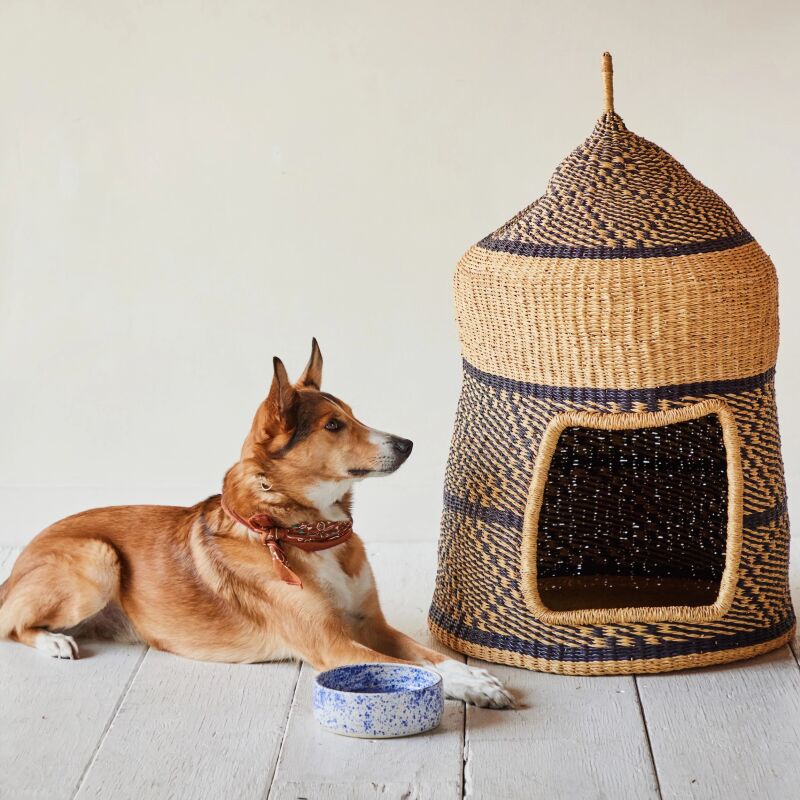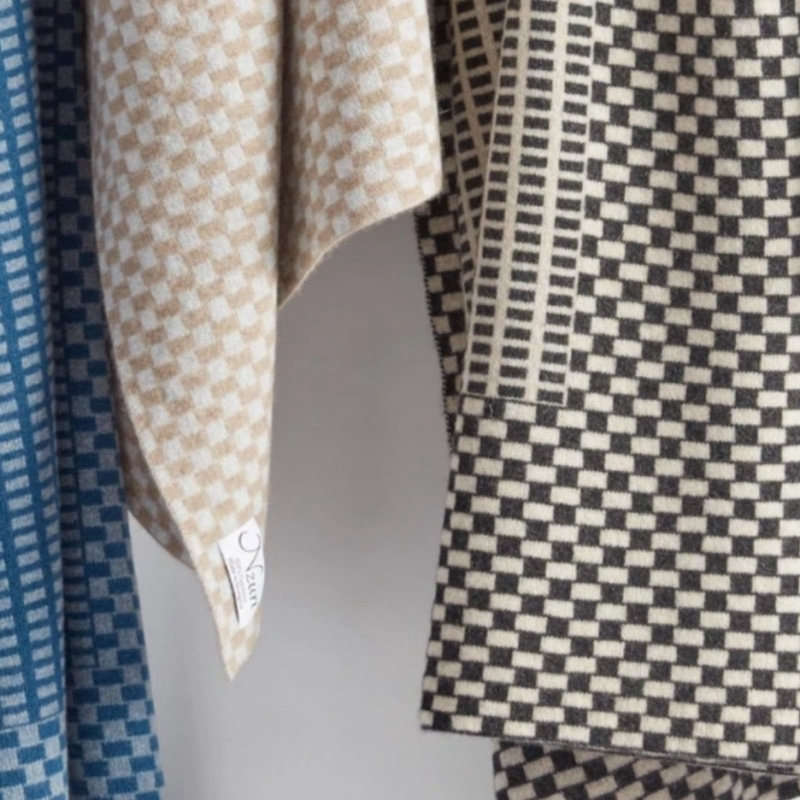A serendipitous Peace Corps posting more than a decade ago is how Kansas native Julie Wagne met her future husband Ibrahima Wagne. The couple became acquainted when Julie was training in Nouakchott Mauritania, where Ibrahima was teaching biology. When she was sent to Boghe for her teaching service (where Ibrahima had grown up), their friendship developed, with his family taking her under their wing. Dating proved no mean feat, given that it took an eight-hour bush taxi ride through the Saharan desert just to meet.
The couple, who now reside in San Francisco, had been thinking of ways in which they could help the Fulani, Ibrahima’s tribe from West Africa. The Fulani are noted for their unique, handmade textiles, but with the young no longer learning how to weave, the tradition is slowly dying out. The Wagnes decided to reinvigorate the craft by exporting the textiles outside of West Africa, and so Petel, which means “little spark,” was born. To see more, go to Petel.
Photos by Sven Wiederholt except where noted.

Above: From L to R: Ibrahima’s aunt, mother, aunt, and sister, all Fulani who weave in the traditional style. Photograph by Andrea Moore.

Above: Detailed stitching from a vintage Fulani wedding blanket.

Above: Limited edition pillowcases made with one-of-a-kind cotton. The fabric is hand-woven in Mauritania by artisans using rugged hand-made looms tied to trees. Petel Pillows $150 each.

Above L: Repurposed fabrics are used for many of their products; zip pouches start at $44. Above R: Zip Pouch made from a vintage Fulani ceremonial textile: $56.

Above: Tote Bag; $95.
Above: Part of the couple’s collection of vintage blankets. It was a gift to Julie from Ibrahima’s mother, Aissata Coumba Tall, when the couple got engaged.

Above: The Wagne Family in San Francisco.
Looking for more fabrics, Check out our colorful offerings in our Gallery.





Have a Question or Comment About This Post?
Join the conversation (0)